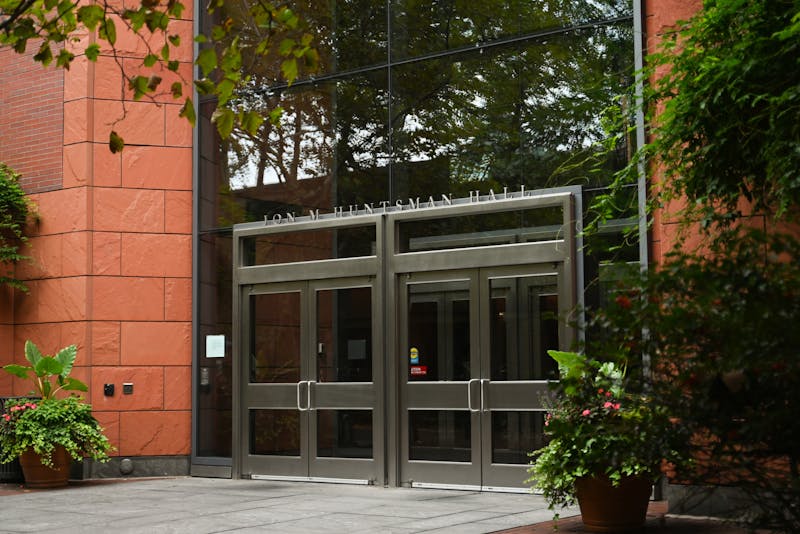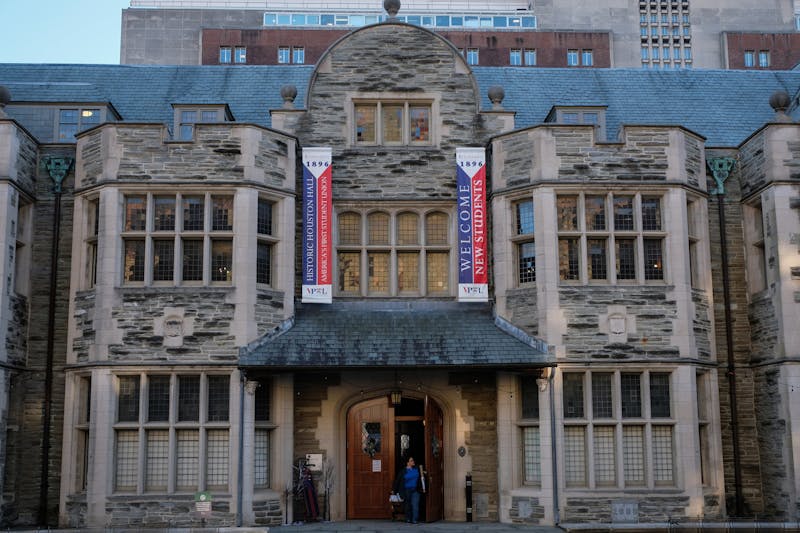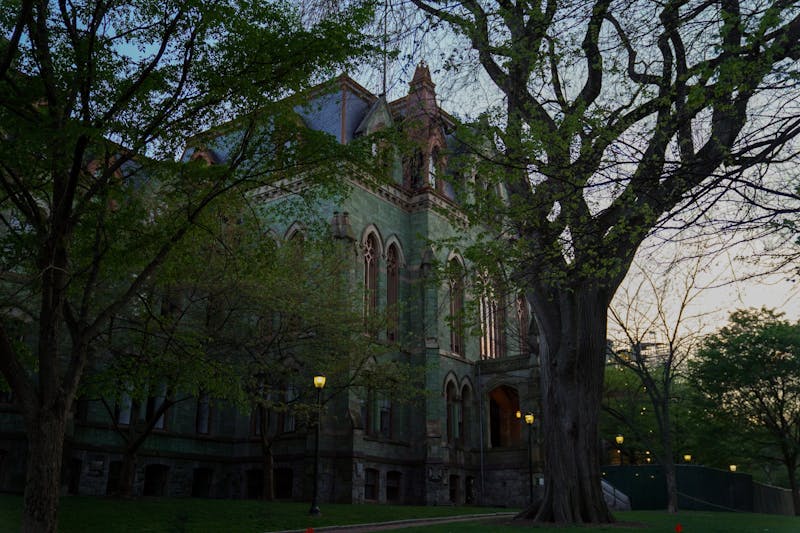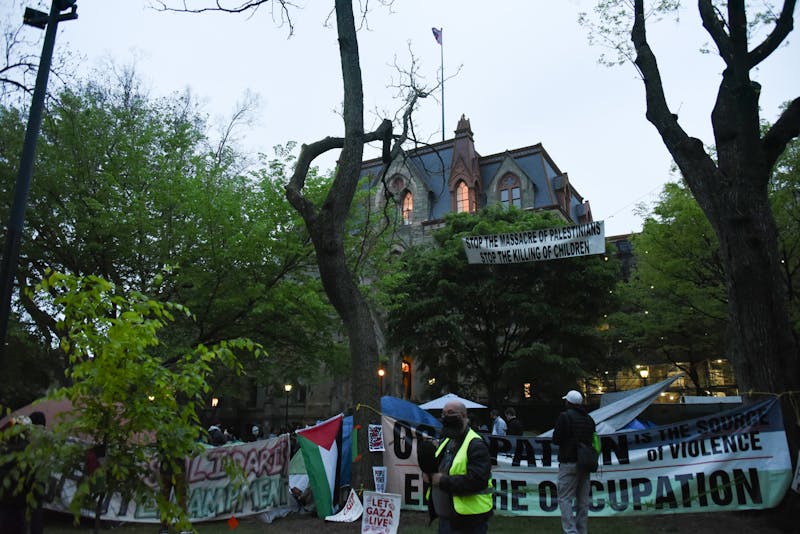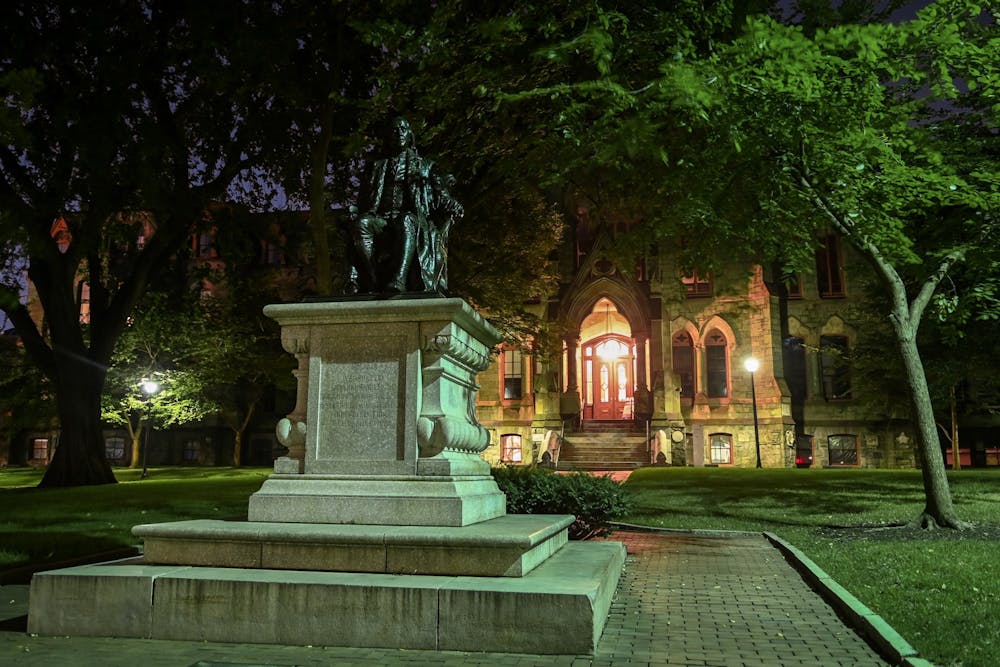
A hearing was held over a recent bias complaint over the Penn student government’s Nominations and Elections Committee approval of an Israeli divestment referendum.
Credit: Kylie CooperA virtual hearing took place on June 6 to address a bias complaint raised by a Penn student against the University’s student government’s Nominations and Elections Committee approval of a proposed referendum on divestment from Israel.
The petition for the referendum — which was circulated on April 24 by Penn's Muslim Student Association — asked students four questions, including whether the University should disclose all its investments, divest from Israel, and terminate partnerships and ties with Ghost Robotics, a company housed in Pennovation Works that develops four-legged robots for military use that are allegedly used by the Israeli government to “commit human rights violations.”
According to an Instagram post on April 26, the referendum was approved and proceeded to a ballot vote by the student body. The results have not yet been released to the Penn community.
The student raised a complaint against the expedition of the approval process and claimed it revealed bias on the side of the University’s student government, citing the Fair Practices Code for Referenda that the NEC must abide by.
The code states that “all referenda and the associated constitutional language, if necessary, must be submitted to the NEC's Vice Chair for Elections at least two weeks before the desired start date of the polling period.”
In the complaint, which was obtained by The Daily Pennsylvanian, the student wrote that two questions — if Penn should "divest its endowment fund from companies and organizations that profit from, engage in, or contribute to the government of Israel’s human rights violations" and if Penn should terminate its partnership with Ghost Robotics — required rewording "to remove bias, or they need to be removed from the referendum entirely."
The complainant called the question on divestment a "leading and inflammatory question," arguing that the question asks respondents if one should "support or not a government that perpetrates human rights violations?" The student also argued that it is difficult to define "what a human rights violation is" and "who determines what 'profit from, engage in, or contribute to' includes." The student concludes by asking if "given the way the question is posed, do you have much leeway to ever answer no?"
The complainant's issues with the third referendum question center on Ghost Robotics' status as a private company and the "prejudicial" language in the question. The student asks if "the primary use of the "drone-mounted robot dogs" [is] to clear booby-trapped tunnels for Israelis, and thus save IDF lives, or is it to "commit human rights violations," and echoes their earlier point of not knowing what defines a "human rights violation."
The student also expressed concerns with the timing of the referendum: The referendum's presentation and voting period mostly took place during Passover. Criticism from Jewish students caused Penn's student government to extend the deadline for voting from May 1 to May 3 to help negate this concern.
However, the complaint alleges that "timing has been set to intentionally assist proponents, and make it as easy as possible for them to vote." The complaint points out that having the voting deadline extended to 11:59 p.m. on a Friday is "four hours after sundown, when observant Jews can no longer vote" due to observing Shabbat.
The student expressed that "there are clearly some in the Jewish community that would advocate for the passage of this referendum; nevertheless, in all cases, a referendum should be set during a non-controversial timeframe."
"At a minimum, the optics are suboptimal here," they wrote, encouraging the referendum to be postponed until the fall to "get out the vote en masse and to have sufficient time to address the concerns above about the wording of the questions."
In a statement to the DP in April after the proposal was approved, an MSA spokesperson wrote that the referendum was presented “to get an honest and direct understanding of how the Penn student body feels on these three questions.”
"We want to emphasize that it is crucial that all undergraduate students vote on this referendum," they said. "Whether students vote in support or disagreement with the questions, this is an opportunity to receive the most accurate perspectives of the undergraduate student body."
Earlier that same week, the Penn Israel Public Affairs Committee proposed its own referendum in response and opposition to MSA’s referendum.
“We understand that the MSA is proposing an unprecedented referendum and we want to stand by our commitment to amplifying student voices and our responsibility to advocating for the student body,” NEC Chair Yousef Elyoussef and Undergraduate Assembly President Ria Ellendula wrote in a joint statement to the DP on April 24. “Our goal is to ensure this is an equitable and transparent process.”
The Daily Pennsylvanian is an independent, student-run newspaper. Please consider making a donation to support the coverage that shapes the University. Your generosity ensures a future of strong journalism at Penn.
Donate






